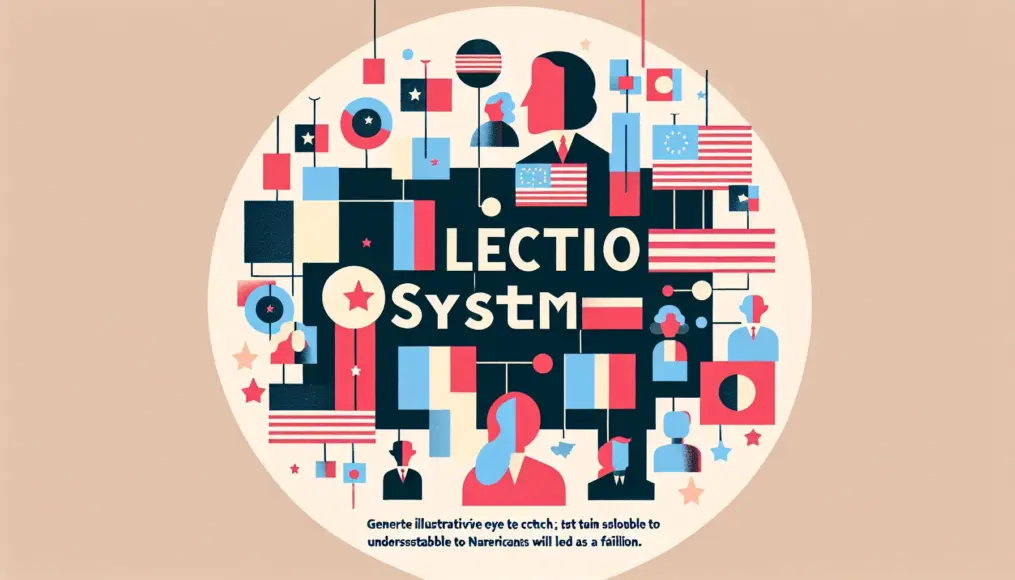What if I told you that the way we elect representatives can shape the very fabric of our democracy? The proportional representation system is a fascinating topic that has gained attention in Japan’s political discourse. By understanding this system, we can explore how it reflects a diversity of opinions and enhances democratic engagement.
In this article, we’ll dive into the benefits of proportional representation, shedding light on how it differs from other electoral systems. This exploration not only helps us appreciate the nuances of our political landscape but also invites us to consider what improvements can be made for a more inclusive future.
As we reflect on past political challenges and the ongoing evolution of our electoral methods, we’ll see how adopting a proportional representation system can lead to a more vibrant and competitive political arena. Join me as we unpack these important discussions around representation and the future of Japanese politics!
- Discover the essential features of the proportional representation system.
- Learn about its benefits in promoting diverse opinions and competition.
- Examine historical challenges and how they relate to current political dynamics.
What is the Proportional Representation System?
Basic Concept of Proportional Representation
The proportional representation system is designed to ensure that the number of seats held by parties in a legislature reflects the votes they receive. This means that if a political party receives a certain percentage of the total votes, they should receive a similar percentage of seats in the parliament. This concept aims to provide a voice to a wider range of opinions and groups, allowing for a more representative governance.
One of the significant benefits of this system is that it minimizes the chances of “wasted votes.” In traditional winner-takes-all systems, many votes do not contribute to the election outcome. However, with proportional representation, even smaller parties can gain representation, which encourages a more inclusive political environment. This is crucial for a healthy democracy, as it allows citizens to feel that their votes matter, regardless of their political affiliation.
Moreover, proportional representation can foster cooperation among parties, as forming coalitions often becomes necessary to achieve a governing majority. This aspect can lead to more deliberative politics, where diverse viewpoints are considered in decision-making processes.
- Ensures representation reflects the electorate’s preferences
- Reduces wasted votes and enhances voter engagement
- Encourages coalition-building and cooperation among parties
Differences from Other Electoral Systems
When comparing proportional representation to other electoral systems, such as the first-past-the-post system, the differences become quite clear. In a first-past-the-post system, the candidate with the most votes in a district wins, often leaving minority opinions unrepresented. This can lead to a political landscape dominated by two major parties, limiting the diversity of perspectives in governance.
On the other hand, proportional representation allows for multiple parties to thrive, reflecting a broader spectrum of political beliefs. Voters are more likely to find a party that aligns with their views, which can result in higher voter turnout. This inclusivity not only strengthens democracy but also encourages political engagement among citizens.
Ultimately, understanding these differences is vital for anyone interested in improving political representation in Japan. By recognizing the strengths of the proportional representation system, we can advocate for reforms that promote a more equitable political landscape.

For those interested in delving deeper into electoral systems, you might find the article “Understanding Single-Member Districts and Proportional Representation: Differences and Benefits Explained” particularly insightful. It offers a clear comparison between the single-member district system and proportional representation, enhancing your understanding of how these systems impact political representation and voter engagement.
- First-past-the-post often excludes minority opinions
- Proportional representation encourages multiple parties
- Higher voter turnout due to better alignment of parties with voters’ beliefs
Benefits of the Proportional Representation System
Reflection of Diverse Opinions
One of the standout features of the proportional representation system is its ability to reflect a wide array of opinions within the electorate. This is crucial in a society as diverse as Japan, where citizens hold various beliefs and values. By ensuring that legislative seats are allocated based on the percentage of votes received, this system allows smaller parties and minority voices to gain representation.
The inclusion of diverse opinions not only enriches political discourse but also empowers underrepresented groups. Voters can feel more connected to their representatives, knowing that their views matter in the grand scheme of governance. This representation fosters a sense of belonging and encourages citizens to engage more actively in the political process, ultimately leading to a healthier democracy.
Moreover, when diverse viewpoints are present in decision-making bodies, it often results in more comprehensive policies that consider the needs of various segments of society. This leads to legislation that is more likely to benefit the majority rather than just a select few, making a positive impact on the overall well-being of the community.
- Enhances representation of minority groups
- Fosters a sense of belonging among citizens
- Leads to more comprehensive and inclusive policies
Promotion of Competition Among Political Parties
Another significant benefit of the proportional representation system is its ability to promote competition among political parties. Unlike winner-takes-all systems, this approach encourages multiple parties to participate in elections, creating a dynamic political landscape. The presence of various parties fosters healthy competition, pushing them to articulate their platforms more clearly and to engage with voters effectively.
This competitive environment can also lead to innovative policy proposals as parties strive to differentiate themselves from one another. Voters benefit from having more choices, which can lead to increased political engagement. When people have options that align closely with their beliefs, they are more likely to participate in elections and advocate for their preferred parties.
In conclusion, the promotion of competition not only enhances the vibrancy of the political arena but also reinforces the democratic process. As parties compete for votes, they become more accountable to the electorate, ultimately contributing to a stronger and more representative political system.
- Encourages multiple parties to participate
- Fosters innovative policy proposals
- Increases voter engagement and accountability
Past Issues and Solutions
Historical Background and Issues
As we delve into the historical context of Japan’s political landscape, it’s vital to recognize the challenges that have shaped our current system. Over the years, the electoral process has faced several issues, particularly concerning representation and voter engagement. For instance, the dominance of major parties often left smaller voices unheard, leading to a disconnection between citizens and their representatives. This disconnect not only discouraged voter participation but also stifled the diversity of opinions that are essential for a thriving democracy.
The first-past-the-post system, which was prevalent for many years, frequently resulted in significant portions of the electorate feeling disenfranchised. Many voters would cast their ballots for candidates who had little chance of winning, leading to what is known as “wasted votes.” This situation contributed to a political climate that lacked competition and innovation, failing to address the needs of a diverse society.
Moreover, the historical context reveals that political apathy grew as citizens felt their votes didn’t matter. This was particularly concerning in an era when Japan faced numerous social issues that required comprehensive and inclusive political solutions. The absence of a proportional representation system prevented the emergence of new parties that could have offered alternative perspectives and policies.
In light of these challenges, it becomes clear that addressing the shortcomings of our electoral system is crucial. The transition towards a more inclusive approach, such as proportional representation, can help rectify these historical issues and pave the way for a more engaged electorate.
- Historical dominance of major parties led to disenfranchisement
- Voter apathy grew due to feelings of wasted votes
- Lack of diversity in representation stifled political innovation
Efforts Towards Solutions
In recent years, there have been concerted efforts to address the issues of representation in Japan. Advocacy for a proportional representation system has gained momentum, as citizens and political activists alike recognize the need for a more equitable approach to governance. By promoting this system, there is hope for a political landscape that reflects the true diversity of the electorate.
Efforts have included public discussions, educational campaigns, and grassroots movements aimed at raising awareness of the benefits of proportional representation. These initiatives highlight how such a system can lead to a more inclusive political climate, where even smaller parties have a chance to be heard. As more people become informed about the potential benefits of this approach, the call for reform continues to grow louder.
The transition towards a proportional representation system is not without its challenges, but the ongoing dialogue and advocacy demonstrate a collective desire for change. By embracing this shift, Japan can take significant steps toward a political system that values every vote and every voice, ultimately leading to a healthier democracy.
- Advocacy for proportional representation is gaining momentum
- Public discussions and educational campaigns are raising awareness
- Collective desire for change is driving political reform efforts
Impact on Modern Politics
Effects on Current Japanese Politics
As we examine the implications of the proportional representation system, it’s essential to consider its effects on contemporary Japanese politics. This system has already started to reshape the political landscape, allowing for a more diverse array of parties and candidates to emerge. With the inclusion of smaller parties in the legislature, we can see a richer dialogue taking place, reflecting the varied opinions of the electorate.
Moreover, the presence of multiple parties encourages a culture of collaboration and coalition-building. This shift not only enhances political discourse but also forces larger parties to engage with the smaller ones. As a result, we’re witnessing a more dynamic political environment where diverse viewpoints can contribute to policy-making processes.
- Increased representation of minority parties
- Enhanced collaboration among political factions
- A more vibrant and engaging political discourse
Future Challenges and Prospects
Looking ahead, the journey towards fully realizing the benefits of the proportional representation system comes with its own set of challenges. One significant concern is the potential for political fragmentation. As more parties gain representation, the risk of creating a fragmented parliament increases, which can complicate the decision-making process. This fragmentation might lead to difficulty in forming stable governing coalitions, potentially slowing down legislative progress.
Additionally, as we continue to adapt to this system, maintaining a balance between representation and governance efficiency will be crucial. The challenge lies in ensuring that while a variety of voices are heard, the government remains functional and capable of delivering on its promises to the people. Striking this balance will require ongoing dialogue and adaptation among political actors.
Despite these challenges, the prospects for a more inclusive and representative political landscape in Japan are promising. The push for proportional representation reflects a broader desire for a political system that truly represents the will of the people. By overcoming the obstacles ahead, Japan can foster a political environment that thrives on diversity and collaboration.
- Potential for political fragmentation
- Need for balance between representation and governance
- Promising future for inclusive political engagement
Summary
In conclusion, the proportional representation system offers significant benefits that can reshape the future of Japanese politics. By reflecting a broader spectrum of opinions, it encourages participation from minority parties and fosters a more inclusive political environment. This system not only enhances representation but also promotes competition among political entities, resulting in innovative policy proposals and a more engaged electorate.
Moreover, understanding the historical context and the challenges faced by Japan’s electoral system highlights the importance of transitioning towards a more equitable approach. The ongoing advocacy for proportional representation signifies a collective desire for change, paving the way for a healthier democracy.
As we move forward, it’s crucial to recognize the potential challenges of this system, such as political fragmentation, while remaining optimistic about the future. Embracing a proportional representation system can lead to a vibrant political landscape that truly represents the will of the people.
- The proportional representation system reflects a diverse range of opinions and enhances voter engagement.
- It encourages competition among political parties, leading to innovative policy proposals.
- Historical challenges in Japan’s electoral system highlight the need for a more inclusive approach.
We would love to hear your thoughts on the proportional representation system and its potential impact on Japanese politics. Please feel free to share your comments below!



Comment